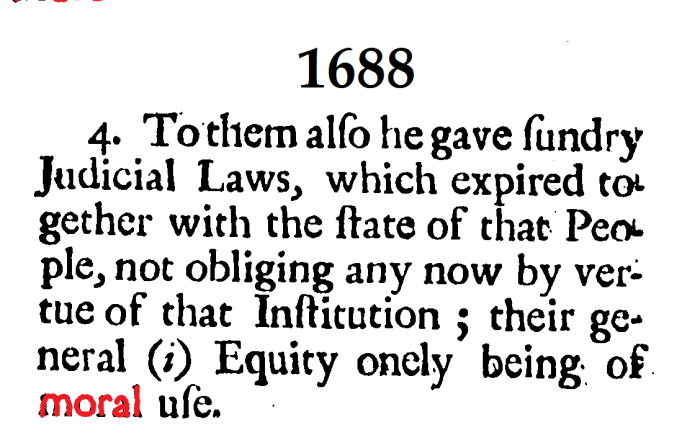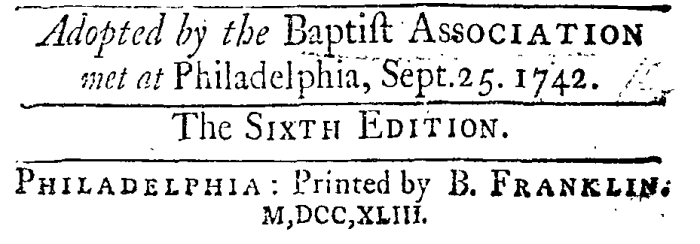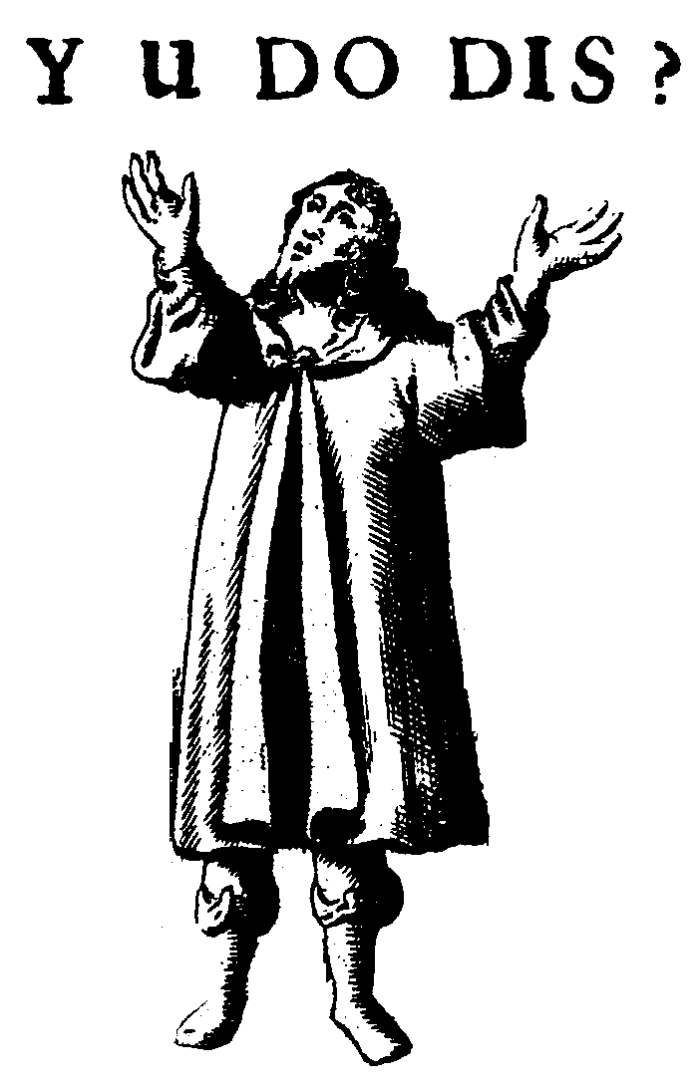This is a public service announcement:
If you’re reading the Second London Baptist Confession of Faith and in 19.4 of your copy it says that the general equity of the Israelite judicial laws are of “modern” use, then you’re probably reading an edition copied from Charles Spurgeon’s 1855 reprint (found commonly in places like this). Putting aside the reasons for the change, you should know that “modern” is not the original reading. It should read “moral” instead of “modern.”
Like this:
You should also know that the following editions of the confession have “moral” in 19.4, not “modern”: 1677, 1688, 1699, 1719, 1720, 1743 (two different printings), 1765, 1773, 1774, 1790, 1794, 1798, 1809, 1818, 1829, 1850 (2LCF is copying the Savoy Declaration here, btw). To my knowledge and research, Spurgeon’s reprint is the first to make this change.
So if you’re going to make an argument from that wording, then appeal to Spurgeon and his reprint (if anything), but not any of the 17 (at least) editions of the confession that precede his.
***Update***: Judicious and impartial readers have pointed out that in places like this it is claimed that a 1742 edition of the confession used the word “modern” instead of moral. As I understand it, there are a few problems with this.
1. The confession was adopted by the Philadelphia association in 1742, but not published by them until 1743.
Every time you look at a hundred dollar bill, remember that the guy on it printed the confession of faith. For most of us, that won’t be very often.
2. The 1743 edition uses “moral,” just like the editions before and after it.
3. The 1743 edition calls itself “the sixth edition” following the “fifth edition” of 1720 (and the 4th edition of 1719 before it and on backward).
4. And the 1743 “sixth edition” is followed by the “seventh edition” in 1773.
5. So, if there is a 1742 copy of the Philadelphia confession that is not on ECCO or anywhere else, and if it reads “modern” instead of “moral” in 19.4, then it would be a significant surprise to me. Not only would this copy break the consecutive chain of specifically labeled editions (second, third, fourth, etc), but it would also be strange that only one year later in 1743 the Philadelphia association reprinted the confession and reverted the wording to its original reading. Did Spurgeon make the change in 1855 for the first time, or is there a copy of the confession out there that reads “modern” in 19.4? It’s possible there is a copy I have missed. But even if that’s the case, you still have to deal with the copies listed above, which are original scans, not second-hand website copies. They all read “moral” as previously asserted.
6. Dear well-beloved Spurgeon,







Thank you for posting that, Sam. I had to deal with this issue with one of our applicant churches for ARBCA this year. They were taking exception to “Infants dying in Infancy” 10.3 — which I pointed out is not what the confession says. The authoritative version of the confession for ARBCA is found on the ARBCA website and says “elect infants dying in infancy”. It turns out they were using Spurgeon’s reprint that was done by Gospel Mission many years ago.
Thank you for bringing this up. I was totally unaware of “modern” instead of “moral”.
Steve M
Sam, just to fill out the data a wee bit the 1743 Philadelphia Confession and the 1774 Charleston Confession also say “moral,” not “modern.” ad fontes brother.
Thanks, Ron. I updated the post per your comment.
I’m confused… I see the 1742 Philadelphia Confession does say “modern” instead of “moral” http://www.spurgeon.org/~phil/creeds/phila.htm#19
http://www.reformedreader.org/ccc/pc19.htm
It doesn’t help that there are copies of what is properly called the Second London masquerading as Phillies due to publisher error…
This is why textual criticism is so much fun, right here.
Post updated
Very helpful. Thanks!
Phil Johnson has “modern” in his online version of the 1742 Philly. http://www.spurgeon.org/~phil/creeds/phila.htm#19
An error on Johnson’s part, perhaps?
Post updated
U da man
Reblogged this on My Delight and My Counsellors.
Out of curiosity is there any modern (pardon the pun) version of the 2LBC that substitutes modern for moral in that same section or is it only those based upon Spurgeon?
In other words, are there any modern reprints that consciously choose that wording over and against “moral” as opposed to unconsciously copying Spurgeon’s version? If so, I’m not aware of any. The modern language reprint uses the phrase “moral value.”
Great thanks for clarifying that.
Was the change in Spurgeon’s reprint intentional or typo
I would assume that it’s intentional. If this assumption is correct, what were his reasons? I have not studied that question at all. Perhaps another could speak to it.
It would be somewhat humorous if it were a typo. But I don’t see how that could be proved definitively.
SMH, CHARLES.
Seriously though, thanks for this. I knew about the removal of “elect” before “infants” in his edition, but I thought that was the only change.